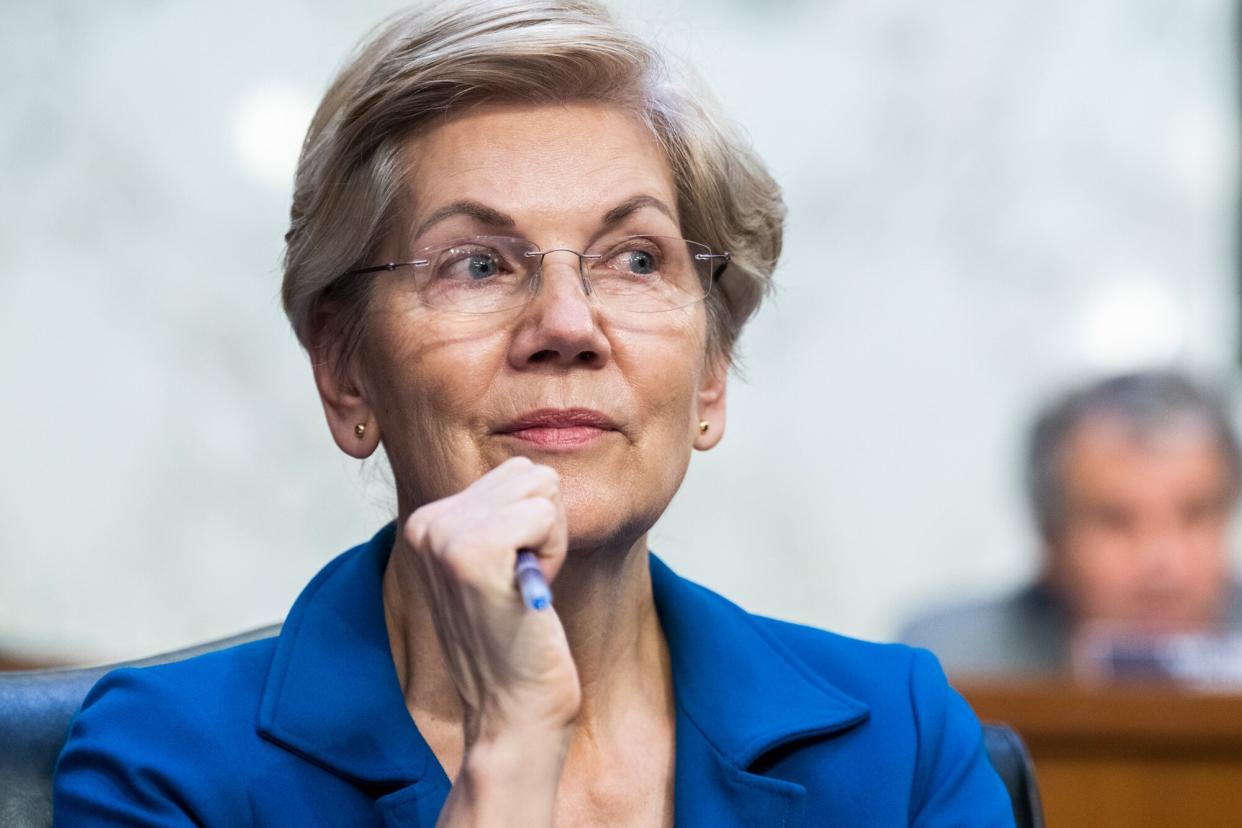Elizabeth Warren Explains How Student Loan Forgiveness Will Fight Inflation as Americans Escape 'Debt Hell'

- Oops!Something went wrong.Please try again later.
Tom Williams/CQ-Roll Call, Inc via Getty Sen. Elizabeth Warren
When Sen. Elizabeth Warren takes up a cause, she gives it everything she's got — and though it would be misleading to call her the mastermind behind President Joe Biden's targeted student loan forgiveness plan, there's no question that her years of pushing to alleviate student debt created an environment in which Biden could get on board.
Following the president's announcement Wednesday that he would direct the Department of Education to forgive up to $20,000 in student loan debt for each borrower below a certain income threshold, Warren shares how she's feeling about the milestone accomplishment and what it means for everyday Americans.
"Student loan debt is a stain on who we have become as a nation," Warren tells PEOPLE, noting that generation after generation of Americans have been burdened by the cost of education.
"Tens of millions of people across this country have tried to get an education and have ended up with debts that keep them from moving out of their mom's basement, keep them from saving up to buy a home, keep them from starting a small business, and even keep them from starting a family," she says.
To critics, student loan forgiveness is described as an unfair use of taxpayer dollars that "punishes" those who already paid off debt, or didn't take out loans at all. But proponents of canceling debt never aimed for equality — the goal has always been equity.
"Higher ed is becoming a way to further divide people economically instead of bring them together. If somebody can afford to write a check to go to college, if they come from a family that can pay for it, they've got a pretty smooth sailing path ahead for their place in America's middle class," Warren says. "For anyone whose family can't afford to write a check to send them to college, the path forward is through debt hell."
Never miss a story — sign up for PEOPLE's free daily newsletter to stay up-to-date on the best of what PEOPLE has to offer.
Biden's plan, she adds, is a step toward leveling the playing field by strategically offering relief to those who need it most. "The way he structured it, the most help will go to African Americans, Latinos, first generation college students, mamas and daddies who are trying to go back to school and veterans."
An equitable society isn't about being "fair," if the definition of fairness is giving wealthier Americans the same amount of financial support as those in need.
"This is very much about helping America's working class and middle class," Warren explains. "When the cancellation is finished, half of all Latino borrowers will be completely debt free, and 45% of all African American borrowers won't owe another penny. This is an important step in helping close the racial wealth gap in America."
What about inflation?
Before the Biden administration formally revealed its loan forgiveness plan this week, CNBC released survey results showing that 59% of Americans feared student debt cancellation would worsen inflation, which is finally appearing to ease after months of strapping Americans thin.
"This will not make inflation worse," Warren confidently says, referencing a report released by Goldman Sachs on Thursday that concluded if anything, inflation will go down slightly as a result.
"The reason for that," Warren explains, "is that the president has coupled cancellation with restarting payments. So 20 million Americans will owe no more debt, but the 23 million Americans who do owe debt will start paying an average of about $400 a month. That will fight inflation, not add to it."
RELATED: Senate Passes Groundbreaking Health, Tax and Climate Bill That Proves What Congress Is Capable Of
Warren, along with Senate Majority Leader Chuck Schumer, famously fought to get $50,000 in debt canceled for borrowers in need, a number well above what Biden was willing to commit to. But rather than focus on the deficits, Warren prefers to focus on the positives.
"There's more good that we can do, but now is a moment to celebrate the 20 million Americans who for the first time in their adult lives will not owe any student loan debt," she says. "This is the beginning.

